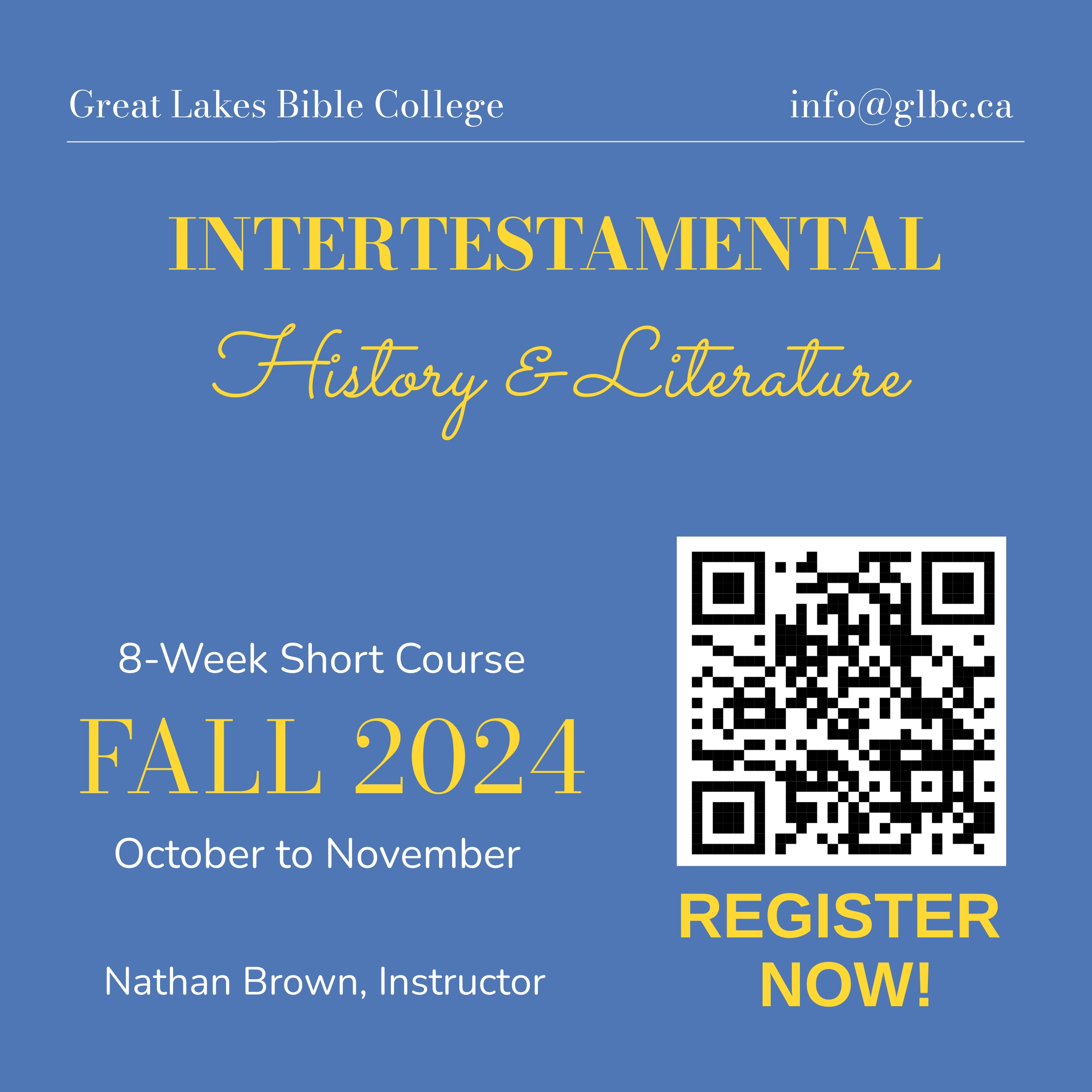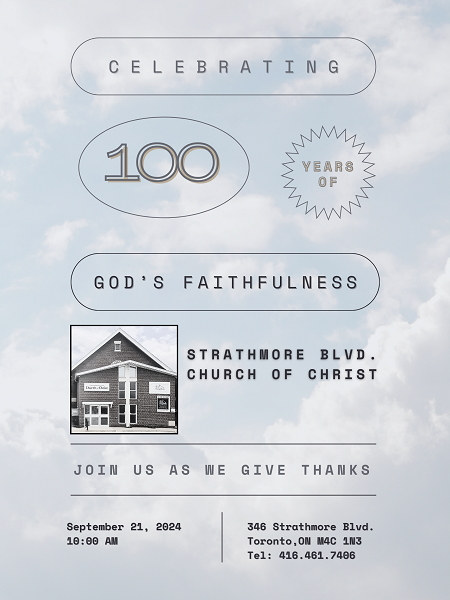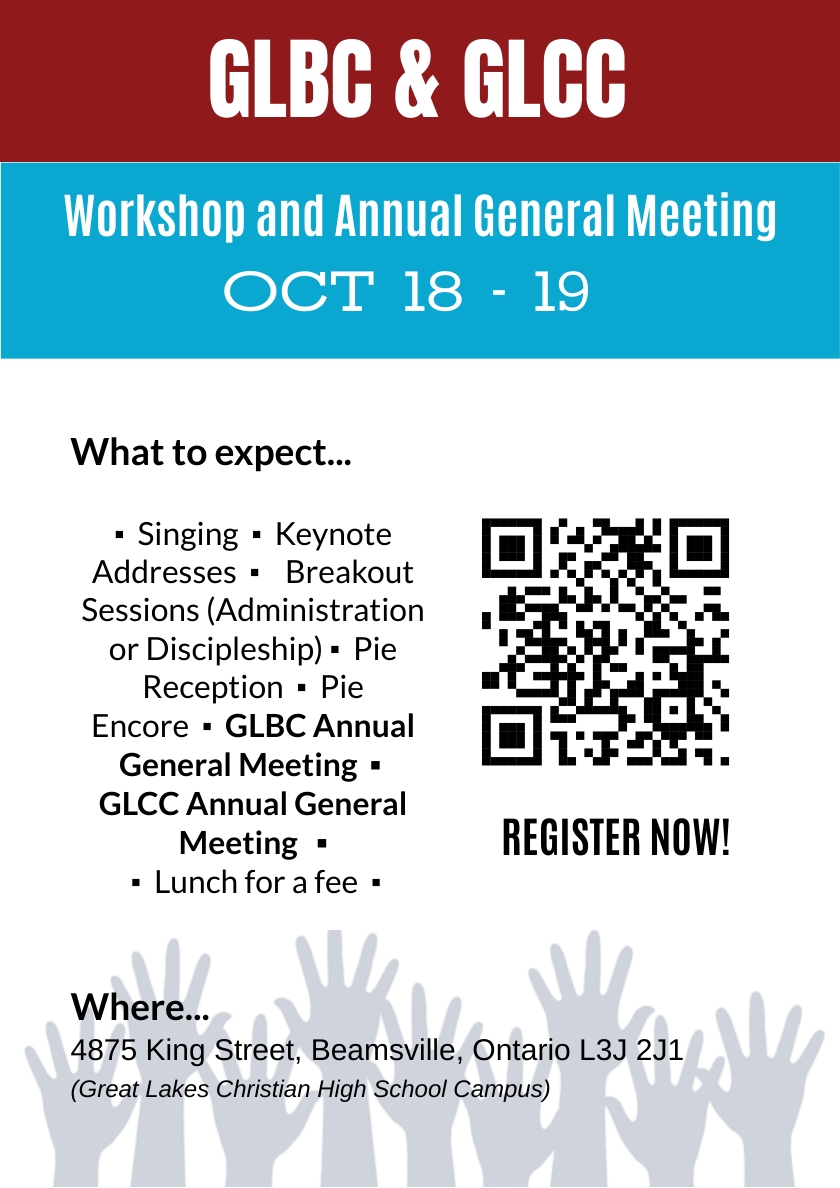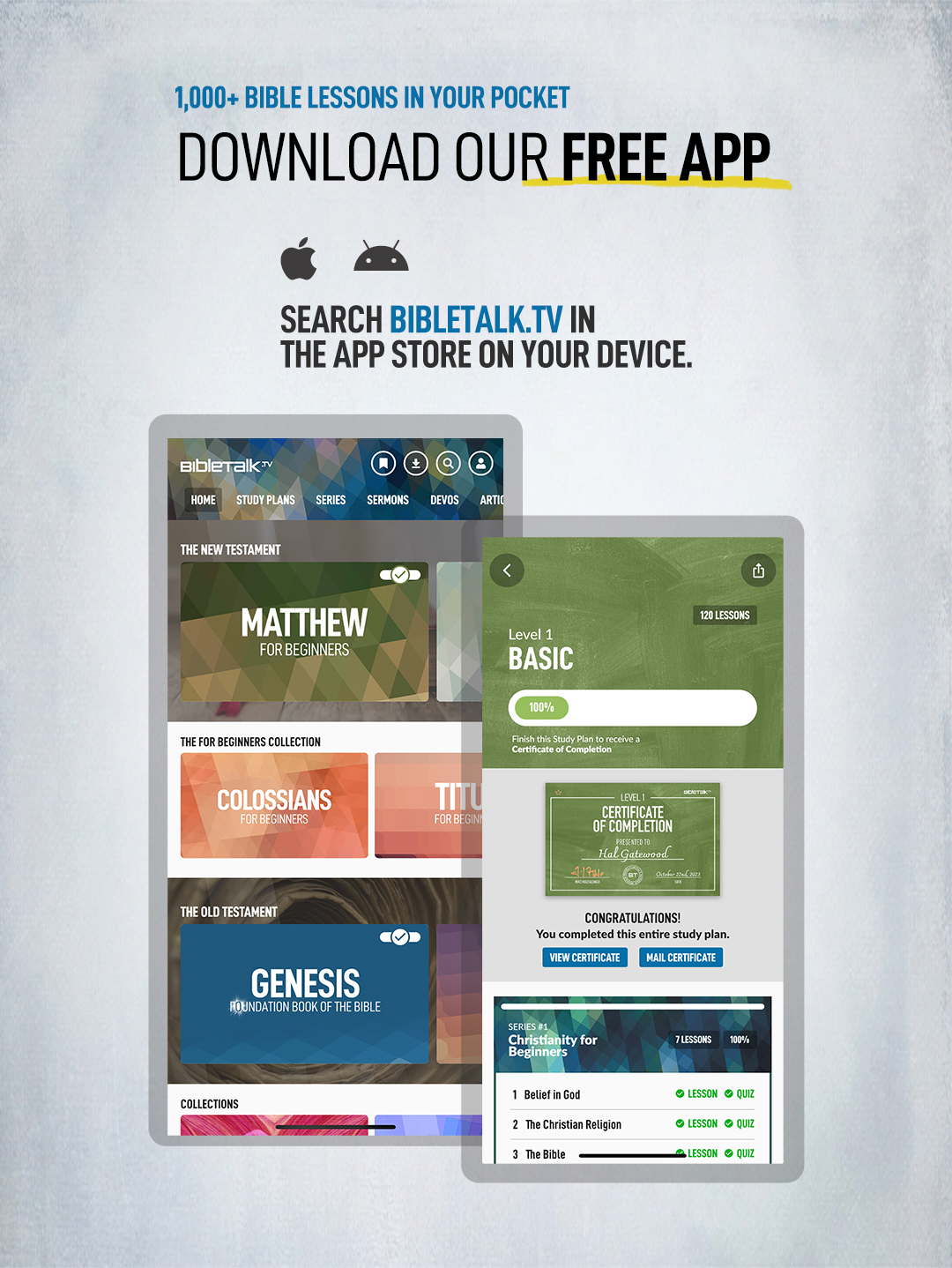The nature of God is revealed in scripture in a variety of ways. It is affirmed in explicit statements about his character and is detectable from his actions and dispositions. Citing just a few passages allows us to assemble a rudimentary idea of who God is.
- Exodus 34:6-7
- Then the Lord passed by in front of him and proclaimed, “The Lord, the Lord God, compassionate and merciful, slow to anger, and abounding in faithfulness and truth; who keeps faithfulness for thousands, who forgives wrongdoing, violation of His Law, and sin; yet He will by no means leave the guilty unpunished, inflicting the punishment of fathers on the children and on the grandchildren to the third and fourth generations.”
- Deut 7:7-9
- “The Lord did not make you His beloved nor choose you because you were greater in number than any of the peoples, since you were the fewest of all peoples, but because the Lord loved you and kept the oath which He swore to your forefathers, the Lord brought you out by a mighty hand and redeemed you from the house of slavery, from the hand of Pharaoh king of Egypt. Know therefore that the Lord your God, He is God, the faithful God, who keeps His covenant and His faithfulness to a thousand generations for those who love Him and keep His commandments
- 1 John 4: 8
- “The one who does not love does not know God, because God is love.
- John 3:16-17
These few passages alone affirm God’s love for all people. They speak of compassion, patience, faithfulness and covenant-keeping. They go on to say that God loves truth, opposes error, rewards obedience, punishes disobedience and values our redemption from sin above all else.
What then do we do when we encounter passages of scripture that appear to contradict this otherwise positive view of God? What do we make of scriptures that record both God’s intention to harden men’s hearts and the accounts of His having done so?












Coherence is one of the features of a valid worldview. In order for the individual beliefs that make up a worldview to coexist, they must not contradict each other. If or when they do, at least some of them must be discarded. Is there a way for us to believe that God is good, that He is just and fair and at the same time has hardened the hearts of at least some people in some situations? The short answer is yes, but calls for a somewhat longer explanation.
The evidence for God’s universal love is overwhelming, demonstrated in the life and sacrificial death of his Son. Yet, as we will see, God has also hardened men’s hearts – seemingly making it harder for them to believe and to obey.
The scriptures affirm that when God made us in his image, that that included both the ability and the opportunity to exercise free choice. This was necessary in order for us to be like God, extending the possibility for us to be obedient or disobedient. God in his sovereignty has from the very beginning made it clear that there are consequences for both categories of choices.
To restate our question then: when God hardened hearts, did he interfere with ‘freedom of choice’ and in so doing tip the scales in favour of disobedience? And if that is so, how could He remain fair and consistent with what we know otherwise of his nature? Surely God is just and would not encourage, strengthen or force a decision that he also condemns?
Key terms and concepts
Freedom of choice is the ability and it seems the God-given right to make up our own minds. Yet there have always been mitigating factors. Decisions have never been made in a vacuum. Adam and Eve were influenced both by God and by Satan. Now that human society exists, we are also influenced by family, by friends, and a milieu of forces that press upon us. Freedom of choice has never meant ‘freedom from influence’.
The bible helps us to understand, that these come from the world around us as well as those at work in the heavenly places by forces contrary to God’s will. The goal of angelic forces in rebellion against God (of whom Satan is foremost) is to spread that rebellion among us by punishing good and rewarding evil.
God is also at work. He works in the church and through it to promote faith and obedience and does this at a certain arms-length distance. And he uses those angels who serve Him to work in his interests and for our good.
So there are forces at work on our minds at the same time that we put our minds to work. We are free to choose, but not free from influence and in times of persecution we may even be strong-armed into sinful choices.
A second key term or concept is ‘to harden’.
- What does it mean to harden your heart?
- What does it mean for God to harden your heart?
A hardened heart describes the mindset or will of a person. A hardened will or heart is strong, confident, and highly resistant to change. It is progressively less and less sensitive to outside influence. The word obstinate or the phrase ‘set in one’s ways’ are synonyms.
As a verb, to harden one’s heart means: To fortify, to strengthen, to double-down on a position or attitude. To more firmly resolve to stay the course and not give in. It is a decision made all the more resolute by one’s determination and persistence. In this sense it is often seen by the individual as strength of character and not just blind stubbornness.
The bible often indicates who it is that has had a role in the hardening process. We should think of it as a process and not simply that descends upon a person and over which they have no say. In fact sometimes it is the person(s) themselves, and at other times God is engaged and even takes the initiative in hardening hearts.
An underlying question then is…though a hardened heart is less inclined to accept change or persuasion to change, does it still retain the ability to do so? It is important to note that within scripture, some of those who were once hardened eventually changed their minds. Thus this has to do with a condition that one arrives at, at the end of a process and not the place from which they start. Thus, a hardened heart retains freedom of choice, but is more resistant to changing one’s mind
It is helpful at this point to introduce the concept of Epistemic Distance. It is correct to observe that there is a significant ontological difference between us and God. We sometimes describe God in terms of the dimensions of his being as well as the nature of his person or character. On the side of his being…the scriptures teach that God is entirely un-created. He is a spirit. He is eternal and self-existent depending on no one outside of himself. God is infinite in size, power and knowledge. The scriptures go on to add, that as a person, God is pure, holy, kind, patient, truthful, dependable, loving, just…as well as many other positive things.
What epistemic distance suggests is that when God brings an inordinate amount of his power to bear in a situation on earth, he does so in a way that preserves our freedom of choice. This is consistent with his goodness and fairness and allows him to operate in a way the is safe for us while giving us a taste of his power within space and time. Therefore, events such as miracles or clusters of these are cases in point calling for special care on God’s part.
Here are some of the descriptions that we have of God in scripture that emphasize the ‘gap’ or ‘distance’ created between the Eternal One and those of us who are ‘flesh and blood’.
I Tim 6:15b-16:
He who is the blessed and only Sovereign, the King of kings and Lord of lords, who alone possesses immortality and dwells in unapproachable light, whom no man has seen or can see. To Him be honour and eternal dominion! Amen.
There is a reason why ‘flesh and blood’ cannot inherit the kingdom of God. We are not fit to be in his presence. Ontologically, flesh and blood cannot endure his presence and as sinners we are spiritually unfit for his presence. This will not always be so. Our resurrected bodies will dwell in his presence and having been spiritual cleansing and united with Jesus, we give no offence.
Writing to the church at Philippi, the apostle Paul stated that – one day, every knee will bow and every tongue will confess the lordship of Jesus. Freedom of choice, or if you will, freedom to disbelieve the deity of Jesus will be taken away. (Phil 2:5-8) There will be no atheists or agnostics present. Forced confession is not a confession of faith.
There is a reason then why God has dealt with human beings in an ‘arms-length’ fashion. He does it to preserve our freedom of choice. A freedom to say yes for all the right reasons along with the freedom to say no…to disbelieve with the same degree of conviction and confidence that believers have.
The thesis presented to us in scripture is: that God has always interacted with human beings in a way that preserved our freedom of choice
- He has done this when appearing in person and speaking face to face. Some of the people who saw and heard Jesus, participated in his condemnation and death.
- He has done it when empowering miracles. Some who saw them disbelieved while others said that the power came from Satan.
- He has done so even when the decision on our part is a matter of life and death. God has been careful to level the ‘playing field’ in each and every instance
With this in mind, let’s consider some notable instances:
Pharaoh and the Exodus (Exodus 3, 7-14)
To begin with, it is helpful to observe just how many times God hardened Pharaoh’s heart and how many times Pharaoh is said to have hardened his own heart. Given that ‘hardening’ is a process, how did God actually go about bringing about this condition in the heart of Pharaoh?
The scriptures make it clear that God did this by design. He intended to do it. It did not take place as an afterthought nor did it happen on the ‘spur of the moment’.
During the lead-up to the Exodus God explained to Moses that his purpose in what was to follow was to show the world that he was God
- Ex 3:19-20
- Exodus 7:1-5
- Then the Lord said to Moses, “See, I make you as God to Pharaoh, and your brother Aaron shall be your prophet. You shall speak all that I command you, and your brother Aaron shall speak to Pharaoh that he let the sons of Israel go out of his land. But I will harden Pharaoh’s heart that I may multiply My signs and My wonders in the land of Egypt. When Pharaoh does not listen to you, then I will lay My hand on Egypt and bring out My hosts, My people the sons of Israel, from the land of Egypt by great judgments.
- The Egyptians shall know that I am the Lord, when I stretch out My hand on Egypt and bring out the sons of Israel from their midst.”
God’s purpose in this process – was to make it very clear to Pharaoh and to the pagan world, that Yahweh, (“I AM That I Am”) the self-existent God is the one and only God. Since Egypt was the ancient superpower of that day, anything done to Egypt and to Pharaoh would be known world-wide. Pharaoh claimed to be a god andwas worshipped as such. 300 years later when the Philistines captured the ark of the covenant, other nations were still talking about what God had done to the Egyptians. (I Sam 4:7-8). More was at stake then than just one man’s heart or his freedom of choice.
How did God harden Pharaoh’s heart?
The process began when God asked permission – or so it seemed to Pharaoh. He sent two men with a demand. It was a supreme king against two representatives of an enslaved nation.
God made it easy for Pharaoh to say no.
Then, God permitted the diviners of Egypt to duplicate some of the early signs (tapping supernatural powers of the Satanic realm (II Tim 3:8-9) in the days of Jannes and Jambres. In a very real sense, this allowed for a miraculous counterbalance to the miracles of God
“But the magicians of Egypt did the same with their secret arts; and Pharaoh’s heart was hardened, and he did not listen to them, as the Lord had said”. (Exodus 7:22)
We find something like this in the N.T. as well. With the coming of Jesus, miracles were back. Not since the closing of the Old Testament had God been active in this way. Yet before and during the ministry of Jesus, God permitted miracles to be performed by the power of Satan. He opened the door for demon possession and the manifesting superhuman strength (Mark 5). In Philippi, a spirit-possessed fortune-telling girl followed Paul and Silas (Acts 16) Satan was given leave to producing supernatural signs of his own. The effect was the ‘hardening’ of some by strengthening the alternative to belief.
In the days of Pharaoh, the plagues came and went. God kept taking them away, so the crisis passed giving Pharaoh and his administration time to recoup and change their minds.
Ex 8:15: “But when Pharaoh saw that there was relief, he (Pharaoh) hardened his heart and did not listen to them, as the Lord had said”.
The Egyptians did not want to lose a huge work force of free labour and suffer the economic consequences. Nor it seemed could they afford to permit a dangerous precedent. Other vassal nations, like those in Canaan, would be encouraged to rebel. Pharaoh’s cost – benefit analysis called for yet another, no.
Bearing all of this in mind, let me suggest a way of understanding what God was doing that is consistent with what we know of his nature and reflects the inherent fairness of God in the matter of ‘hardening. Knowing that the plagues might just drive Pharaoh and Egypt to their knees and take away much of their freedom of choice, God made it so that that did not happen. When He hardened or strengthened Pharaoh’s heart, he did so in order to preserve the king’s freedom of choice. If God had hit Egypt with the plagues – before Pharaoh had a chance to get ready, it would have been no contest. So God eased him into them and gave him time to become acclimated. God increased the intensity of the miracles to match the strength of Pharaoh’s resistance. For His ultimate purpose was not simply to remove his people from Egypt, but to serve notice to the watching world, “that He is alone is God”. In this He was successful, for in the end…the Egyptians ‘knew that he is God’.
The fact that God was successful in preserving Pharaoh’s freedom of choice is evident in that Pharaoh is credited with doing it himself. God preserved his ability to think clearly and gave him a ‘way out’ by ending each plague. All the while, Pharaoh reasoned, he reassured himself, and he listened to those like Jannes and Jambres who counselled against giving in to God.
Let me also suggest that after a while, this struggle just became personal for Pharaoh. It was a matter of personal pride and standing upon principle. It came to the point when Pharaoh, was fully invested and not going to back down for anything. His heart was hardened and the process was complete. His forced compliance after the Passover and final defeat in the Sea of Reeds left Egypt in ruins and the elite chariot corp, dead.
Other passages in both testaments address this same question and provide examples beyond what this article offers and you are encouraged to study them further. You will find that the principles that we have discussed to this point, apply to them as well. Interestingly enough, God’s act of ‘hardening’ has taken place in the lives of Israel, Israel’s enemies and even the disciples of our Lord.
As it turns out, the process of hardening does not cancel out our freedom of choice. In the case of Pharaoh, it preserved his freedom of choice. In some cases, those whose hearts were once hardened, turned back to God and repented. Thus a hardened heart did not remove freedom of choice or prevent correct choices in the future. God himself strengthens our faith and helps to preserve it. Strengthening is a form of ‘hardening’ that works for our protection while it is at the same time a double-edge sword permitting those who rebel to invest more fully in rebellion with equal confidence.
Through all of that, God remains – just and fair. He is no respecter of persons, honouring our choices and giving them eternal permanence.
Barrie On

